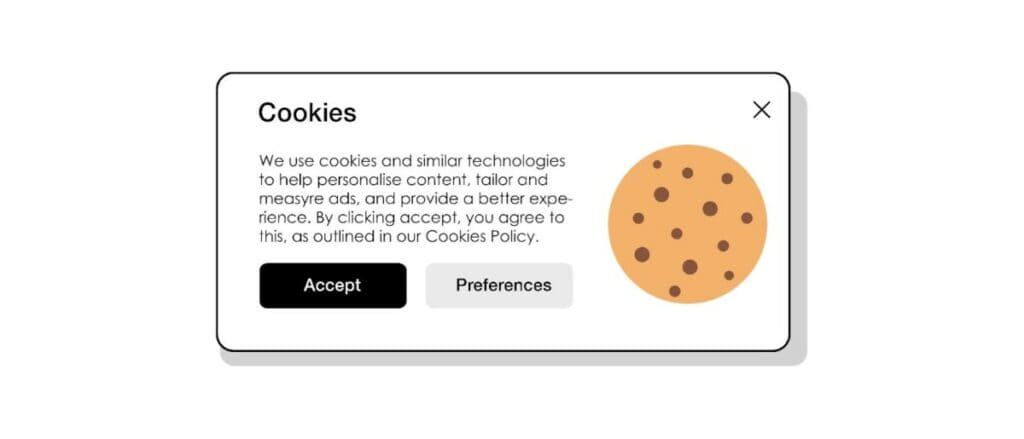Here’s What You Need to Know About Colorado Data Privacy Laws in 2025

The Colorado Privacy Act (CPA) is a state law that went into effect on July 1, 2023, giving Colorado residents more control over how their personal data is collected, shared, and used.
As the foundation of Colorado data privacy law statewide, it applies to businesses that operate in or target Longmont consumers, requiring clear disclosures and responsible data practices.
This article breaks down the CPA in simple terms to help both consumers and businesses understand what’s changed and what actions are required.
We’ll cover:
- Consumer rights like access, deletion, and opt-out
- Business obligations such as privacy notices and data protection
- Who must comply and who is exempt
- Local implications for Longmont businesses and consumers
Curious how this law affects you or your business? Let’s get into it.
Overview of the Colorado Privacy Act
The Colorado Privacy Act (CPA) applies to companies that collect or process data from Colorado consumers and introduces strict requirements around privacy notices, data protection, and consumer consent.
Businesses in Longmont and across the state must now follow clear rules based on how much data they handle—not how much money they make.
Key Dates and Milestones
- July 2021 – CPA signed into law
- July 2023 – Law took effect
- July 2024 – Universal opt-out enforcement began
- January 2025 – New rule updates in force
Who Is Covered Under the CPA?
Businesses must comply if they:
- Process data from 100,000+ consumers annually
- Or process 25,000+ consumers’ data and profit from it
- There is no revenue threshold for coverage

Consumer Rights Under Colorado’s Data Privacy Laws
The Colorado Privacy Act (CPA) gives residents a set of enforceable rights over their personal data. These rights are designed to increase transparency, control, and accountability in how businesses handle consumer information.
If you live in Longmont or elsewhere in Colorado, you are entitled to these 5 data privacy rights:
1. Right to Access and Data Portability
You have the right to see what personal data a business has collected about you.
You can also request that this data be provided in a portable, usable format.
2. Right to Correct and Delete
Consumers can fix inaccurate personal data and request that businesses delete it altogether.
This applies to most types of personal data, with limited exceptions.
3. Right to Opt-Out
You can opt out of your data being:
- Sold to third parties
- Used for targeted advertising
- Used for automated profiling tied to significant decisions
4. Right to Appeal
If a request is denied, you have the right to appeal the decision and receive a response within a set timeframe.
5. Special Protections for Sensitive Data
Businesses must obtain explicit consent before collecting or using sensitive data like:
- Health conditions
- Racial or ethnic origin
- Biometric identifiers
- Sexual orientation

What are Businesses Required to Do under the CPA?
The Colorado Privacy Act (CPA) outlines clear responsibilities for businesses that collect or process personal data from Colorado consumers.
If you’re a Longmont business that meets the CPA thresholds explained earlier, here’s what you’re required to comply with:
Privacy Notices and Transparency
You must provide a clear, accessible privacy notice that explains:
- What data you collect
- Why you collect it
- Who you share it with
- How consumers can exercise their rights
This notice should be easy to find on your website or app.
Data Protection Impact Assessments
If your business engages in high-risk data processing, such as profiling or selling data, you’re required to conduct a Data Protection Impact Assessment (DPIA).
These must be documented and available to the Colorado Attorney General upon request.
Universal Opt-Out Mechanism
By July 1, 2024, you must honor universal opt-out signals sent from browsers or plug-ins.
These browser-level settings let users automatically opt out of:
- Targeted ads
- Data sales
- Profiling
Consent Requirements
You need explicit opt-in consent before processing:
- Sensitive data
- Personal data from known minors under 13
- Data for secondary purposes not originally disclosed
Failing to get proper consent can trigger enforcement and penalties.
Exemptions and Limitations
Not all organizations or data types fall under the Colorado Privacy Act (CPA). Certain entities and types of information are excluded from the law, even if they operate/are collected in Colorado.
Entity-Level Exemptions
The CPA does not apply to:
- Healthcare providers under HIPAA
- Financial institutions under GLBA
- Public utilities and air carriers
Data-Type Exemptions
The following types of data are excluded:
- Publicly available data
- Employment records
- Deidentified or research data
Enforcement and Penalties
The Colorado Attorney General and District Attorneys are responsible for enforcing the CPA.
There is no private right of action—only the state can pursue violations.The Attorney General:
- Holds exclusive enforcement authority
- Can investigate complaints and issue opinion letters
- May demand access to data protection assessments
Fines
Businesses can be fined up to $20,000 per violation. Generally, higher penalties apply for violations involving elderly individuals.
Impact on Longmont Consumers and Businesses
The Colorado Privacy Act (CPA) is already changing what you need to know about how personal data is handled.
Whether you’re shopping online or running a local business, here’s what to do:
Consumers
- Learn how to use your rights to access, delete, or opt out
- Expect clear privacy notices and faster response times
Businesses
- Implement opt-out tools and update privacy policies
- Train staff on handling consumer data requests
2025 Update to Colorado Data Privacy Laws
Starting in 2025, the Colorado Privacy Act (CPA) has expanded requirements for:
- Biometric Data Protections: Effective July 1, 2025, businesses must implement policies for collecting and handling biometric identifiers, including retention schedules and security protocols.
- Children’s Online Data: Starting October 1, 2025, enhanced protections for minors’ data require businesses to assess and mitigate risks when offering online services to individuals under 18.
Colorado Data Privacy FAQ
How do I opt out of data tracking in Colorado?
You can opt out by using a universal opt-out mechanism—typically built into your browser (such as Chrome, Safari, or Edge) or through a privacy plug-in.
What counts as personal data in Colorado?
Personal data includes any information that can identify you, such as your name, email, IP address, and phone number. It excludes public records and deidentified data.
How do I opt out of targeted ads?
Look for a clear opt-out option on websites- many sites will include this in their cookie banner or privacy policy.
Universal opt-out tools can also block targeted ads by default.
Does the CPA apply to small businesses?
Yes, the CPA applies to small businesses who process 100,000+ consumers’ data/year, or 25,000+ with revenue from selling data. There’s no revenue threshold.
Are nonprofits covered by the CPA?
Yes, if they meet the same data processing thresholds as for-profit businesses. There are no blanket exemptions for nonprofits under the CPA.







